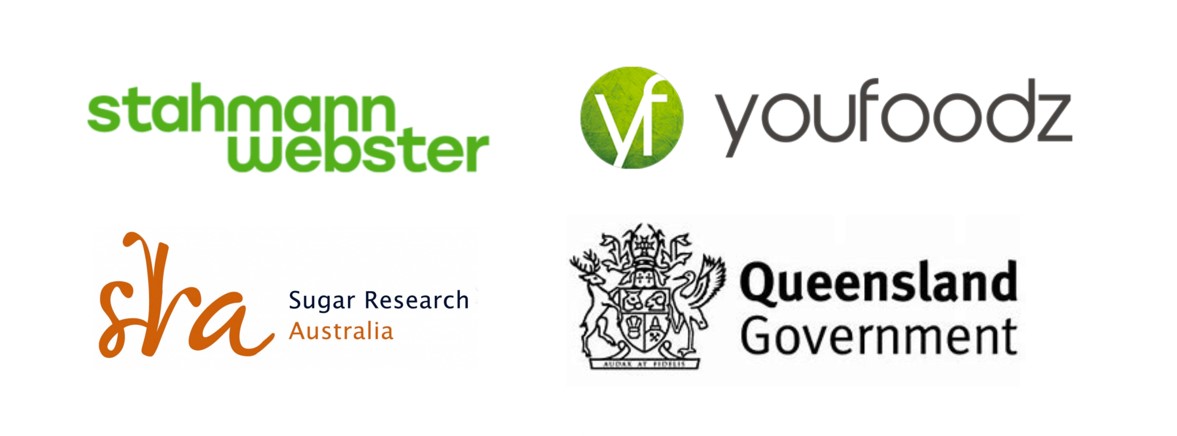Clevvi Supply Chain Management
All the Tools to Modernise Your Whole Supply Chain End to End
Clevvi Supply Chain Management - brings expertise in delivery with the best tools available to modernise your whole supply chain
The Importance of Understanding all the pieces that make a successful, sustainable and modern supply chain business
Clevvi Can Help
Clevvi provide consultancy services to clients who are looking to travel the whole journey end-to-end
1. Integration and Connectivity
- ERP System Integration: Integrate Enterprise Resource Planning (ERP) systems across the supply chain for seamless data sharing and visibility.
- APIs and Middleware: Use APIs and middleware to connect disparate systems and platforms, allowing real-time data flow.
- Supplier and Customer Portals: Offer online portals for suppliers and customers to access information, place orders, and track shipments.
2. Data Visibility and Analytics
- Real-Time Tracking: Implement real-time tracking of inventory, orders, and shipments using RFID, IoT sensors, or GPS technologies.
- Predictive Analytics: Utilize data analytics and machine learning to forecast demand, optimize inventory levels, and identify trends.
- Dashboards and Reporting: Provide user-friendly dashboards for stakeholders to monitor KPIs, performance metrics, and trends.
3. Inventory Management
- Automated Replenishment: Set up automated replenishment based on demand forecasts and inventory levels.
- Warehouse Management Systems (WMS): Implement WMS for efficient inventory tracking, storage optimization, and order fulfillment.
- Barcode and RFID Technology: Use barcode and RFID tags for accurate inventory tracking and cycle counting.
4. Supplier Collaboration
- Supplier Relationship Management (SRM): Implement SRM tools to collaborate with suppliers, manage contracts, and track performance.
- Supplier Scorecards: Develop scorecards to evaluate supplier performance based on metrics like quality, delivery, and cost.
- Electronic Data Interchange (EDI): Use EDI for electronic exchange of documents such as purchase orders and invoices, improving efficiency and accuracy.
5. Demand Planning and Forecasting
- Demand Sensing: Use demand sensing techniques to capture real-time demand signals from various sources.
- Collaborative Planning, Forecasting, and Replenishment (CPFR): Collaborate with key partners for accurate demand planning and forecasting.
- Scenario Planning: Conduct scenario planning to assess the impact of different factors on demand and supply.
6. Transportation Management
- Transportation Management System (TMS): Implement TMS for optimizing freight, carrier selection, and route planning.
- Visibility into Shipments: Provide customers with visibility into their shipments, including tracking and estimated delivery times.
- Last-Mile Delivery Solutions: Explore last-mile delivery solutions, such as crowdshipping or local delivery partners, for efficient delivery to end customers.
7. Risk Management and Compliance
- Supply Chain Risk Management: Use risk management tools to identify, assess, and mitigate supply chain risks.
- Compliance Monitoring: Ensure compliance with regulations and standards using automated compliance checks and audits.
- Blockchain Technology: Explore blockchain for secure and transparent supply chain transactions, especially for traceability in food and pharmaceutical industries.
8. Automation and Robotics
- Robotic Process Automation (RPA): Use RPA for automating repetitive tasks like data entry, order processing, and invoice matching.
- Warehouse Automation: Implement automation in warehouses with robotics, conveyor systems, and automated guided vehicles (AGVs) for efficiency.
- AI-Powered Chatbots: Use AI-powered chatbots for customer service inquiries, order status updates, and supplier communications.
9. Sustainability and Green Initiatives
- Supply Chain Transparency: Implement systems for tracking and communicating sustainability metrics across the supply chain.
- Green Logistics: Optimize transportation routes and modes to reduce carbon footprint and promote sustainability.
- Circular Supply Chain: Explore circular supply chain practices, such as product recycling and remanufacturing, supported by IT systems.
10. Cybersecurity and Data Protection
- Secure IT Infrastructure: Ensure a robust cybersecurity framework to protect sensitive supply chain data.
- Data Encryption: Implement data encryption for secure transmission and storage of sensitive information.
- User Access Controls: Set up role-based access controls to limit data access to authorized personnel only.
11. Continuous Improvement and Adaptability
- Continuous Monitoring and Feedback: Monitor supply chain performance in real-time and gather feedback from stakeholders for continuous improvement.
- Agile Supply Chain: Build flexibility and agility into the supply chain to respond quickly to market changes and disruptions.
- Post-Implementation Review: Conduct post-implementation reviews to assess the effectiveness of IT solutions and make adjustments as needed.
12. Employee Training and Change Management
- Training Programs: Provide comprehensive training programs for employees on new IT systems and processes.
- Change Management: Implement change management strategies to facilitate smooth adoption of new technologies and processes.
3 Points to Remember
- Expert Help is Available
- We will help you on your journey
- We work with you
Clevvi's Supply Chain Modernisation: Revolutionizing Supply Chain Efficiencies with Proven Solutions for Businesses
In a world where the supply chain is more important than ever - your business is our priority. With years of experience across the board in industry, logistics, manufacturing, agriculture, retail and trade we understand that every link in the chain is just as important as the big ticket
- An enterprise-scale solution proudly proven by Clevvi Technology.
- The coming together of Clevvi Technology and Amazon Web Services (AWS).
- AWS are leaders in Cloud and have all the tools you need to empower your supply chain
Amazon Web Services (AWS) offers several services and products that cater to supply chain management (SCM) needs, helping businesses optimize and streamline their processes. Here are some key AWS offerings in this domain:
-
Amazon Forecast: Amazon Forecast is a machine learning service that utilizes historical data to generate accurate demand forecasts. This helps businesses in managing inventory levels more effectively, reducing excess inventory costs, and ensuring product availability.
-
Amazon Simple Storage Service (S3): While not specifically designed for SCM, Amazon S3 is a highly scalable object storage service that many SCM applications use to store and manage vast amounts of data, including inventory records, logistics data, and more.
-
Amazon Relational Database Service (RDS): RDS is a managed relational database service that supports various database engines like MySQL, PostgreSQL, SQL Server, and others. SCM applications often utilize RDS for storing structured data related to inventory management, order processing, and supply chain analytics.
-
Amazon Elastic Compute Cloud (EC2): EC2 provides resizable compute capacity in the cloud, allowing businesses to deploy SCM applications and other related software without worrying about infrastructure management.
-
Amazon Redshift: Amazon Redshift is a fully managed data warehousing service that allows businesses to analyze large datasets related to their supply chain operations. It enables data aggregation, analysis, and visualization, helping organizations derive insights to improve efficiency and decision-making.
-
Amazon Kinesis: Amazon Kinesis offers capabilities for real-time data streaming and processing. SCM applications can leverage Kinesis to ingest, process, and analyze real-time data from various sources such as IoT sensors, supply chain sensors, and social media feeds to gain insights into supply chain operations and respond to events promptly.
-
Amazon Managed Blockchain: This service allows users to create and manage scalable blockchain networks using popular open-source frameworks like Hyperledger Fabric and Ethereum. Blockchain technology can enhance transparency, traceability, and trust in supply chain transactions and processes.
-
Amazon Elastic Kubernetes Service (EKS): EKS provides a managed Kubernetes service, enabling businesses to deploy, manage, and scale containerized applications efficiently. SCM applications can utilize EKS for containerized deployments, enabling easier scalability and management of microservices-based architectures.
-
Amazon Marketplace Web Service (MWS): MWS enables sellers to integrate their Amazon selling accounts with their systems, facilitating automated inventory management, order processing, and product listing synchronization across multiple sales channels.
These are some of the key AWS products and services that play a significant role in supply chain management, offering scalability, flexibility, and advanced capabilities to optimize various aspects of supply chain operations.


Some of our clients


